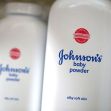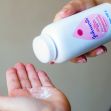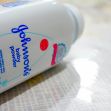November was a busy month for litigation against Johnson & Johnson (J&J); lawsuits are coming in all shapes and sizes, and so are the settlements and jury verdicts. Among the results are staggering million-dollar and billion-dollar awards, including individual cases and class-action lawsuits.
According to a ruling last month, J&J will have to pay $120 million to Donna and Robert Olson. Mrs. Olson contracted mesothelioma and alleged that her more than 50-year daily use of Johnson’s Baby Powder or Shower to Shower was responsible. The Olson’s suit claimed her cancer was the result of exposure to asbestos found in the talc.
Justice Gerald Lebovits of the New York state supreme court confirmed J&J’s liability but reduced the payout to $120 million from the $325 million awarded by the jury last year. The judge explained that $15 million was for compensatory damages and $105 million was for punitive damages. J&J will appeal the verdict, claiming “significant legal and evidentiary errors” at trial.
Judge Lebovits wrote that the jurors could find that for years J&J was “knowingly deceitful” and “willfully blind to” the potential health risks of its products. He indicated that the company’s deceit and blindness was due to its intent to maintain market share and profit.
Also in November of 2020, J&J agreed to pay over $100 million to settle over 1,000 lawsuits that alleged J&J’s talc-based Baby Powder caused ovarian cancer. The 1,000 claims included more than 75 mesothelioma cases. This settlement comes at the end of four years of litigation and is the first mass settlement J&J has made. All other settlements have been made one-on-one. Further, J&J agreed to this settlement without an admission of liability and continues to insist its talc does not cause cancer.
The claims in this settlement group are about exposure to asbestos in the talc as well as the company’s deliberate failure to warn about the dangers of developing ovarian cancer when using J&J’s products for feminine hygiene. That the products were marketed to the health and wellbeing of women made the conduct more egregious.
Meanwhile, on November 3, 2020, the Missouri Supreme Court refused to overturn a 2.12 billion dollar award (previously reduced from $4.69 billion) against J&J, makers of Johnson’s Baby Powder, Shower to Shower, and Shower to Shower Shimmer Effects. The plaintiff alleged that the asbestos and talc in Johnson’s Baby Powder caused her cancer.
Decades of Deceit Come to Light
In 1999, Darlene Coker was diagnosed with mesothelioma. She and her attorney determined that her constant use of J&J’s Baby Powder was the cause, and they filed suit. J&J was able to avoid handing over talc test results and internal company records. In the end, Ms. Coker had to drop her case. There was no proof.
Two decades later, J&J has had to share thousands of pages of internal documentation. Reuters undertook an investigation and examined many of the documents, deposition transcripts, and trial testimony. They discovered that from at least 1971 to the early 2000s, the company’s raw talc and finished powders sometimes tested positive for small amounts of asbestos. Company executives, mine managers, scientists, doctors and lawyers fretted over the problem and how to address it without disclosing it to regulators or the public. The documents also show successful efforts to influence U.S. regulators’ plans to limit asbestos in cosmetic talc products and scientific research on talc.
In 2009 the International Agency for Research on Cancer announced that it had found sufficient evidence to confirm that exposure to asbestos causes ovarian cancer and that asbestos-contaminated talc causes both ovarian cancer and mesothelioma. Research done on ovarian cancer tumors showed talc and asbestos fibers inside the tumors that match fibers found in talcum powder products.
Research published in February 2020 showed that talc and asbestos fibers found in the tumors of ten ovarian cancer patients exactly matched the talc and asbestos fibers found in J&J’s talcum powder products, including Baby Powder, Shower to Shower, and Shower to Shower Shimmer Effects. Talc was found in all ten patient’s tumors; tremolite and anthophyllite, highly carcinogenic forms of asbestos, were found in eight.
Documentation discovered among J&J’s records showed that J&J’s marketing efforts were aimed at specific groups. Talc is a staple among African American households. J&J made a practice of leaving Baby Powder samples with beauty salons and churches throughout black communities. The Reuters investigation showed campaigns focused on geographic areas that were predominantly underdeveloped and had high black and brown populations.
J&J also marketed to humid climates, since talc can be used to keep skin dry. J&J strategically distributed its products to less sophisticated consumers in geographic regions that encouraged frequent use of the products. J&J segmented its marketing campaigns without properly disclosing that its products could potentially cause cancer.
After these facts were exposed in court, the Missouri jury felt inclined to award $4.69 billion for that group of plaintiffs. In its decision regarding the case, the appellate court noted that J&J referred to its talcum products as the “golden egg,” "company trust-mark,” and "sacred cow,” and as far back as the 60s recognized that the talc contained dangerous asbestos. “A reasonable inference from all this evidence is that, motivated by profits, defendants disregarded the safety of consumers despite their knowledge the talc in their products caused ovarian cancer,” the court said. The plaintiffs “showed clear and convincing evidence defendants engaged in conduct that was outrageous because of evil motive or reckless indifference,” the court said.
J&J voluntarily recalled 33,000 bottles of baby powder after the FDA detected a type of asbestos in a product sample in October of 2019. J&J claimed they recalled them “out of an abundance of caution.”
In May of 2020, J&J said it would stop selling Baby Powder with talc in the US & Canada. Rather than admit the products had safety issues, J&J claimed the cessation was “due in large part to changes in consumer habits and fueled by misinformation around the safety of the product and a constant barrage of litigation advertising.”
J&J maintains the talc product is safe, though it has replaced the talc with a cornstarch version for the U.S. and Canada.
In a June 28, 2020, SEC filing, J&J said, “Notwithstanding the Company’s confidence in the safety of its talc products, in certain circumstances the Company has and may settle cases. The Company has established an accrual primarily for defense costs, and reserves for potential settlement of currently pending mesothelioma cases, in connection with product liability litigation associated with body powders containing talc.”
The Saga Continues
J&J still faces more than 20,000 lawsuits. “In certain circumstances, we do choose to settle lawsuits, which is done without an admission of liability and in no way changes our position regarding the safety of our products,” Kim Montagnino, a J&J spokeswoman, said in an emailed statement. She said “scientific evidence” supports that position. “Our talc does not contain asbestos and does not cause cancer.”
Bloomberg Intelligence estimated in July 2020 that settling all the outstanding cases could cost J&J as much as $10 billion. But now that the results are becoming more plaintiff-friendly, it’s likely the number of lawsuits will continue to increase. That $10 billion may not be sufficient.






